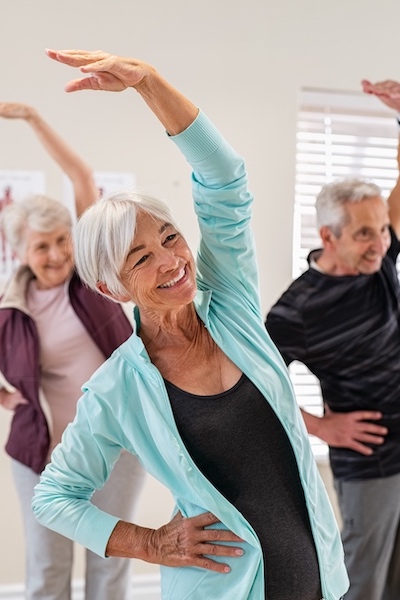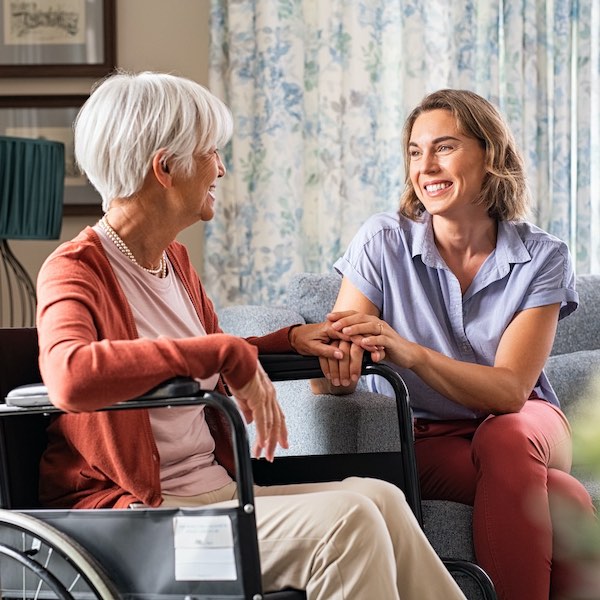Tips for Aging with a Sharp Mind
According to the US Centers for Disease Control (CDC), there’s a clear link between age and cognitive decline. About 1 in 9 aging adults will experience moderate to severe cognitive impairment. Symptoms can range from forgetting simple tasks and common words to complete moments of mental incapability. For seniors living with mental decline, assisted living facilities in Boynton Beach can provide the support they need to keep their minds sharp.
About 5.8 million people live with dementia–a general term for cognitive decline from a variety of reasons ranging from specific diseases to the effects of aging. While you may not be able to entirely stop cognitive decline, there are lifestyle choices that can slow the progress of disease. Your assisted living care team can help ensure that you’re getting the stimulation that you need to age with a sharp mind. Here is a look at a few recommendations to protect aging mental health.

Prioritize Healthy Lifestyle Habits
Healthy habits are the foundation of treating many ailments in life, regardless of age. So, it’s no surprise that our list begins with taking foundational steps to ensure you’re choosing healthy habits first. For seniors, this means encouraging movement like gentle walks around a beautiful courtyard or participation in a joint mobility water aerobics class. Pair light to moderate exercise with balanced nutrition and a healthy sleep routine for a good starting point.
It’s important for seniors to maintain consistency. Healthy habits begin with good routines, ensuring that seniors continue to get good quality sleep even as aging makes it a little harder to fall or stay asleep. Quality senior living facilities support all the lifestyle needs of their residents, including information and support for developing healthy sleeping habits. Ask your care team how they can help residents stay healthy.
In addition to doing all the right things, seniors should refrain from specific unhealthy habits like tobacco use or alcohol abuse. Both substances are linked to accelerated cognitive decline.
Meet the Basic Human Needs
Depression can be one of the biggest contributing factors to early mental decline. While depression seems to be increasingly common among senior populations, mitigating the risks of mental health problems stems from meeting basic human needs. This means that healthy habits go beyond exercise and nutrition. Humans are social in nature, therefore seniors need human connection to balance their social and emotional needs with their physical needs. Assisted living facilities can be great for social interaction, providing residents with a built-in community of peers.
Even for those who refrain from social interaction due to a loss of hearing or feelings of social anxiety, it’s important to find some way to engage the mind. Social interaction, even if it’s one-on-one, helps strengthen the neural connections that make cognitive function possible. When seniors withdraw from social engagement, mental capacities can quickly decline.


Stimulate the Mind
Seniors need to do more than check off a list of healthy habits. They need to continue to grow, learn, and expand their mind. The absence of mental challenge leads to atrophy. That’s why some swear by solving crossword puzzles or Sudoku while others enjoy arts and crafts. Choose an activity that you’ll enjoy and find a way to learn something new. Stimulation can take many different forms, for example:
- Reading
- Writing
- Crossword Puzzles
- Board or Card Games
- Social Engagement & Conversation
- Listening to Music

If aging eyesight keeps an avid reader from picking up a book, family members or companions can read to them. If arthritis keeps an elderly person from journaling, perhaps they could dictate their thoughts instead. Senior living facilities are full of opportunities to stimulate the mind with built-in activities like card games, music, gentle exercise, and crafts.
If you’re looking for more aggressive tactics, one study found positive results with brain training activities which lowered the risk or onset of dementia by 29%. The study followed thousands of participants over a span of 10 years to determine how these exercises affected mental cognition with age. The most significant type of mental training exercise is speed-of-processing training which exercises the mind to receive and process information quickly.
The Bottom Line on Aging with a Sharp Mind
Cognitive decline is a top concern for aging seniors and their families–and for good reason. Many seniors will experience significant cognitive impairment as they age. However, there is a silver lining. Research has shown that healthy lifestyle choices, social engagement, and mental stimulation can slow the progress of dementia in aging patients. Many senior living facilities focus on providing services that go beyond physical care and cater to the mental stimulation needs of residents as well. As you look for a facility that fits your needs, pay close attention to the services each offers. Choosing the right home is about more than convenience, it’s about quality of life as well.

